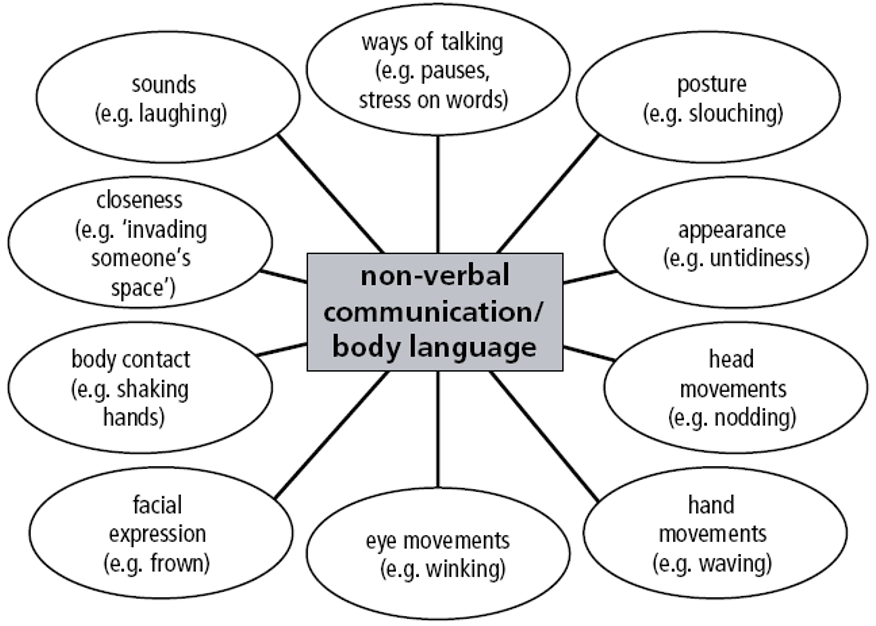Communication is about passing messages between people or organisations. However, it is not just about giving information. Communication also includes listening to what others have to say and observing the non-verbal signals that people send.
Communication vocabulary
All communication is made up of verbal and non-verbal parts.
Verbal
Anything spoken.
Non-verbal
Anything not spoken out loud.
Can you find the definitions of each of these words?
- Open question
- Active listening
- Gestures
- Verbal
- Facial expressions
- Listening
- Non-verbal communication
- Slang
- Closed question
- Body language
Speaking and listening at work
It is important to communicate in a professional way verbally and non-verbally, as well as in writing. Professional communication should be used at all times in your work place, with colleagues and with customers or service users.
When do we communicate at work?
- Answering the phone
- Making phone calls
- Face to face communication with colleagues
- Face to face communication with customers or service users
Can you think of any others?
Non-verbal communication at work
The way we speak is important at work, but our non-verbal communication is also very important. If we make a bad impression with our non-verbal communication we can seem unprofessional, rude or like we do not know what we are doing.

Positive non-verbal checklist
Facial expressions
For example smiling, showing concern, showing interest
Posture
Standing or sitting as straight as possible shows you are interested, listening, focused and ready to work. When people slouch, it can look like they are tired, not interested and not ready to work.
Making eye contact
Making eye contact when someone is talking to you shows you are interested, listening and focused on the conversation. It allows the people in the conversation to see how the other is feeling and where to take the conversation.
Tone of voice
A person’s tone of voice will show if they are angry, sad, confident, interested, stressed and much more.
Supported by Health Education England
